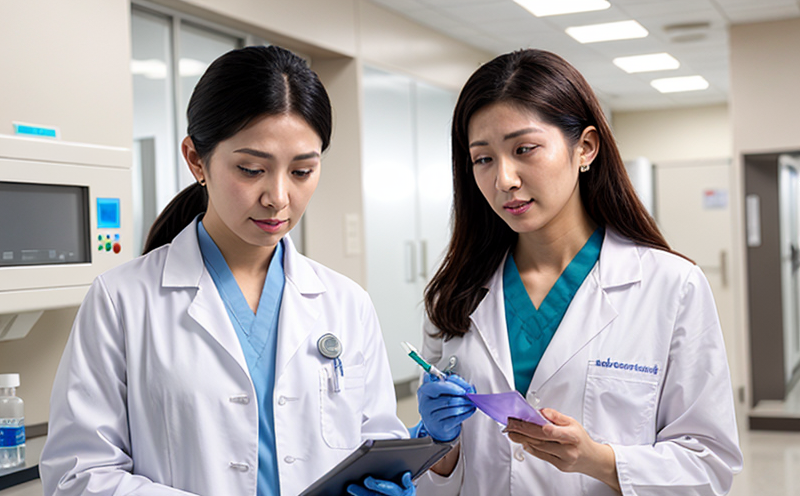ISO 21973 Transport of Biological Material Testing
The ISO 21973 standard provides a comprehensive framework for ensuring that biological materials are transported under conditions that maintain their quality, safety, and efficacy. This service focuses on the specialized testing required to ensure compliance with this standard.
Biological materials, such as vaccines, monoclonal antibodies, and recombinant proteins, are highly sensitive to environmental changes during transport. Any deviation from specified temperature ranges or exposure to inappropriate conditions can lead to degradation, loss of potency, and potential safety issues. Therefore, rigorous testing is essential to ensure that these materials meet the stringent requirements set by ISO 21973.
The testing process involves multiple steps, including sample preparation, environmental monitoring, and verification of transport parameters. Sample preparation typically includes aliquoting, labeling, and packaging the biological material in accordance with specified protocols. Environmental monitoring focuses on temperature, humidity, and vibration levels throughout the transportation journey. Verification ensures that all critical factors are within acceptable limits.
Instrumentation plays a crucial role in this testing process. Temperature probes, humidity sensors, and accelerometers are used to monitor environmental conditions during transport. These instruments provide real-time data that can be analyzed post-hoc to assess compliance with the standard. Additionally, controlled environment chambers simulate various transportation scenarios to evaluate the stability of biological materials under different conditions.
The acceptance criteria for this testing are based on internationally recognized standards such as ISO 21973 and other relevant guidelines from regulatory bodies like the World Health Organization (WHO) and the European Medicines Agency (EMA). Compliance with these standards ensures that the transported biological materials meet quality and safety requirements.
| Application Area | Description |
|---|---|
| Vaccine Manufacturing | Ensuring that vaccines remain stable during transportation to maintain their effectiveness. |
| Biologics Development | Verifying the stability of biologics under various transport conditions. |
| Biosimilars Production | Evaluating the impact of transportation on biosimilar products to ensure their equivalence to reference products. |
Benefits
The benefits of ISO 21973 transport testing are numerous. Firstly, it ensures that biological materials maintain their quality and efficacy throughout the transportation process. This is crucial for pharmaceutical companies to deliver reliable products to patients.
Secondly, compliance with this standard enhances the reputation of pharmaceutical manufacturers. It demonstrates a commitment to maintaining high standards in product handling and distribution. This can lead to increased trust from regulators and healthcare providers.
Thirdly, by conducting rigorous testing, companies can identify potential issues early on. This allows for corrective actions to be taken before products reach the market, reducing the risk of recalls or adverse events. Additionally, it helps in optimizing transportation logistics to minimize temperature excursions and other risks.
The benefits extend beyond just compliance with regulations. They also contribute to patient safety by ensuring that biological materials are stable and effective when they reach their destination. This is particularly important for life-saving treatments like vaccines and monoclonal antibodies.
Industry Applications
| Application Area | Use Case |
|---|---|
| Vaccine Manufacturing | Ensuring that vaccines remain stable during transportation to maintain their effectiveness. |
| Biologics Development | Evaluating the stability of biologics under various transport conditions. |
| Biosimilars Production | Verifying that biosimilars meet quality and safety standards during transportation. |
Customer Impact and Satisfaction
The impact of ISO 21973 transport testing on customers is significant. By ensuring that biological materials are transported under optimal conditions, pharmaceutical companies can enhance customer satisfaction by delivering reliable products. This leads to increased trust in the company's commitment to quality and safety.
Customers, including healthcare providers and patients, benefit from this service as it ensures that treatments remain effective and safe during transportation. This is particularly important for life-saving treatments like vaccines and monoclonal antibodies, where any deviation could have serious consequences.
The service also helps in optimizing transportation logistics to minimize temperature excursions and other risks. This not only improves the quality of the transported materials but also reduces costs associated with product recalls or adverse events. By addressing these issues proactively, pharmaceutical companies can enhance their reputation and maintain customer trust.





